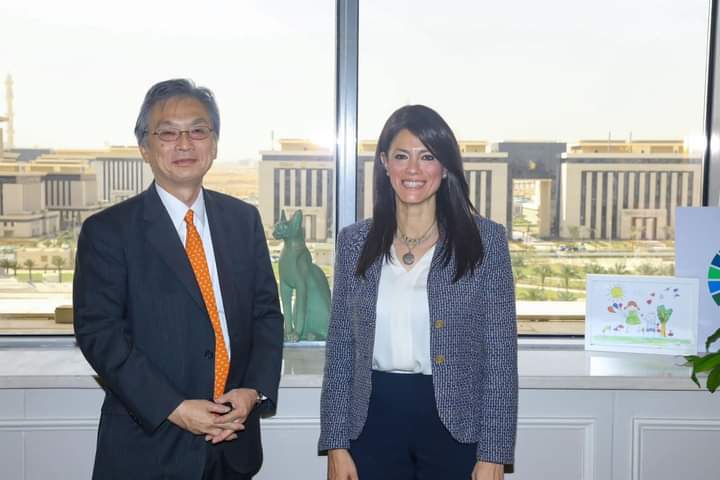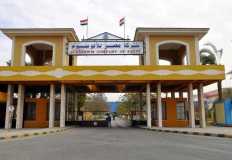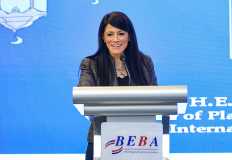
Dr. Rania Al-Mashat, Minister of Planning, Economic Development and International Cooperation, discussed with Oka Hiroshi, Ambassador of Japan to Egypt, the strengthening of economic ties between the two countries in light of mutual priorities and interests.
This marks the first meeting
between officials since the merger of the planning, economic development, and
international cooperation portfolios.
Al-Mashat also emphasized the
importance of bolstering international collaborations in industrial
localization and human development, particularly as we commemorate the 70th
anniversary of Egypt-Japan relations.
During the virtual meeting, she
highlighted the strong bilateral ties between Egypt and Japan, underscoring the
deep-rooted partnerships in numerous strategic sectors. These include sectors
to enhance human capital investment, infrastructure development, and support
for the transition to renewable, to support comprehensive and sustainable
growth.
The Japanese ambassador emphasized
Japan's commitment to strengthening its partnership with Egypt and expressed a
desire to expand cooperation in various areas.
Both parties agreed to hold a
high-level policy dialogue between Egypt and Japan by the end of August. This
dialogue will serve as a crucial platform for enhancing bilateral cooperation.
It will focus on development cooperation, exploring opportunities for future
collaboration and technical assistance that align with Egypt's Vision 2030, the
government's three-year program and the priorities of the various ministries.
Emphasizing the importance of
deepening bilateral cooperation, the Minister underscored the need to align
future partnerships with the Egyptian government's priorities, particularly in
industrial development, localization, human capital development, and
sustainable economic growth. She highlighted Japan's valuable expertise in
these areas and the potential for mutually beneficial collaborations.
The meeting also discussed key
joint initiatives, including the DPL development policy program and ongoing
grant processes for cultural and agricultural projects.
Rania Al-Mashat emphasized the
importance of partnering with the Japan International Cooperation Agency (JICA)
and other financial institutions to stimulate private sector investment in
priority sectors, particularly given the government's strong commitment to
fostering economic policies that empower and expand the private sector's role
in development efforts.
She highlighted the crucial role of Japanese institutions in supporting the private sector to execute energy axis projects under the 'Novi' program. Specifically, the 'JICA' agency is funding the development of the 'Abydos' solar power plant with a capacity of 500 megawatts, while the Bank of Japan is contributing to the construction of the 'Amont' wind power plant in the Ras Gharib region, also with a capacity of 500 megawatts She noted that these partnerships showcase the increased availability of financial and technical resources from Japanese institutions to Egyptian private sector firms, akin to the "Novi"program.
Egypt and Japan enjoy a strong development partnership, with Japan being one of Egypt's most important Asian partners in this area. Japan has supported Egypt's sustainable development goals with over 18 development projects valued at approximately $3.9 billion. These projects cover various sectors including health, education, energy, electricity, transportation, civil aviation, tourism, antiquities, irrigation, and education. Additionally, Japan has provided numerous development grants to Egypt.





